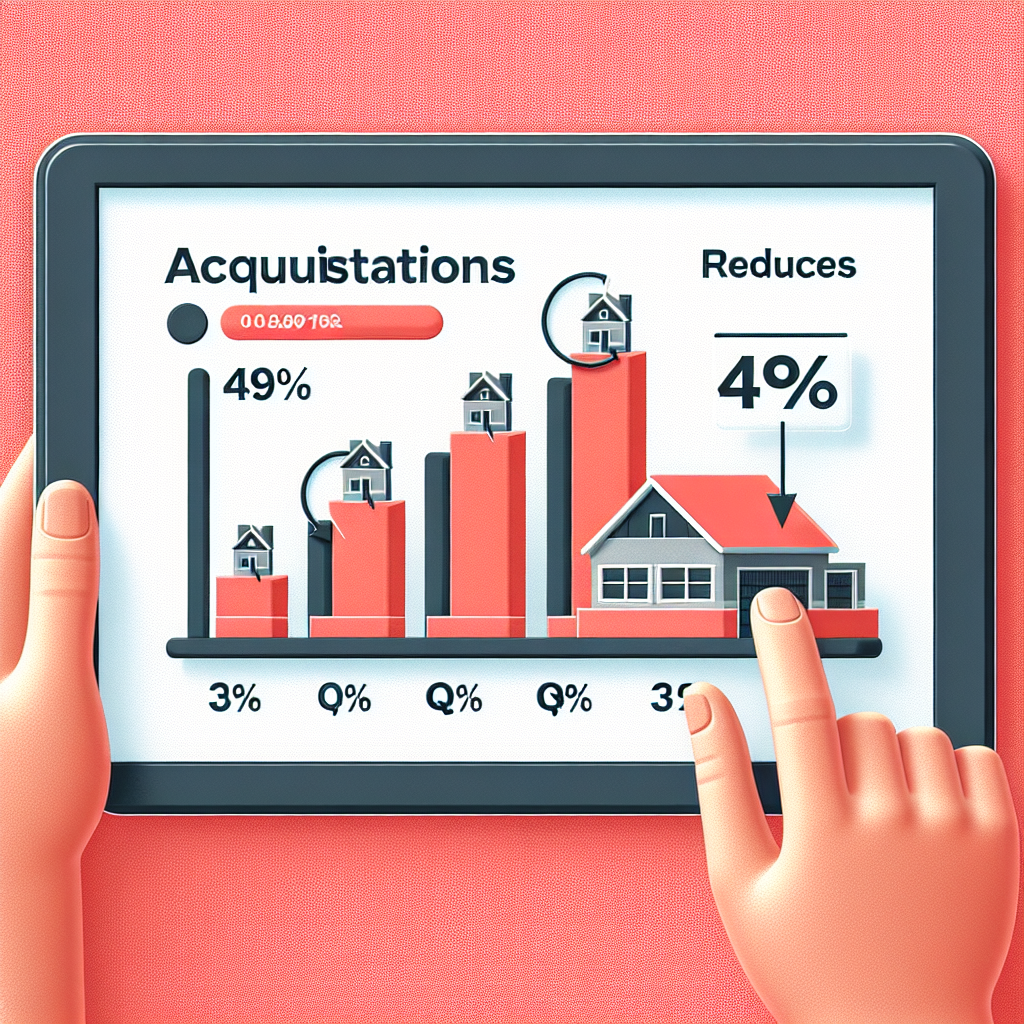Offerpad Reduces iBuyer Acquisitions by 49% in Q3
In the rapidly evolving real estate market, iBuyers have emerged as a significant force, offering homeowners a quick and convenient way to sell their properties. Among these, Offerpad has been a prominent player. However, recent reports indicate that Offerpad has reduced its iBuyer acquisitions by 49% in the third quarter of the year. This strategic move has raised questions and sparked discussions about the future of the iBuying model and the broader real estate market.
Understanding the iBuyer Model
The iBuyer model, short for “instant buyer,” allows companies to purchase homes directly from sellers, often within days. This model offers several advantages:
- Speed: Homeowners can sell their properties quickly without the traditional delays associated with listing and closing.
- Convenience: Sellers avoid the hassle of showings, open houses, and negotiations.
- Certainty: iBuyers provide a guaranteed sale, eliminating the uncertainty of finding a buyer.
Despite these benefits, the model also comes with challenges, including market volatility and the need for significant capital investment.
Offerpad’s Strategic Shift
Offerpad’s decision to reduce acquisitions by nearly half in Q3 is a strategic response to current market conditions. Several factors have influenced this decision:
- Market Volatility: The real estate market has experienced fluctuations due to economic uncertainties, affecting property values and demand.
- Rising Interest Rates: Higher interest rates have led to increased borrowing costs, impacting both buyers and sellers.
- Operational Costs: The cost of maintaining and reselling properties has risen, prompting Offerpad to reassess its acquisition strategy.
By reducing acquisitions, Offerpad aims to mitigate risks and focus on optimizing its existing portfolio.
Case Studies: Lessons from the Market
Offerpad is not alone in adjusting its strategy. Other iBuyers have also faced challenges in the current market:
- Zillow: In 2021, Zillow exited the iBuying market after incurring significant losses, highlighting the risks associated with this model.
- Opendoor: Another major iBuyer, Opendoor, has also reported adjustments in its acquisition strategy to align with market conditions.
These examples underscore the importance of adaptability and strategic planning in the iBuying sector.
The Future of iBuying
While Offerpad’s reduction in acquisitions may seem like a setback, it also presents an opportunity for the company to refine its approach. The iBuying model is still evolving, and companies must adapt to changing market dynamics. Key areas of focus for the future include:
- Technology Integration: Leveraging data analytics and AI to make informed purchasing decisions.
- Customer Experience: Enhancing the selling process to provide even greater convenience and satisfaction.
- Market Diversification: Expanding into new markets to reduce dependency on any single region.
These strategies can help iBuyers navigate challenges and capitalize on opportunities in the real estate market.
Conclusion
Offerpad’s decision to reduce iBuyer acquisitions by 49% in Q3 reflects a strategic response to current market conditions. While this move may raise concerns, it also highlights the company’s commitment to risk management and operational efficiency. As the iBuying model continues to evolve, companies like Offerpad must remain agile and innovative to thrive in a competitive landscape. By focusing on technology, customer experience, and market diversification, iBuyers can position themselves for long-term success in the real estate industry.



